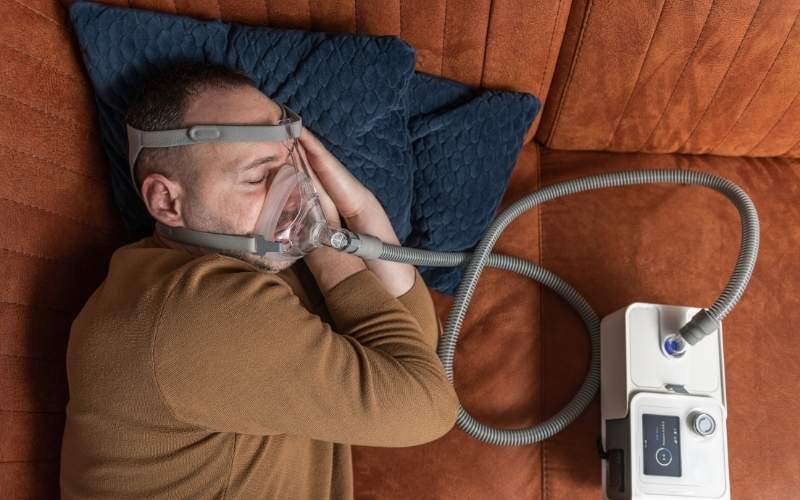Common Symptoms of Sleep Apnea: How to Recognize Them?

Sleep apnea is a common sleep disorder that affects millions worldwide. This condition causes interruptions in breathing during sleep, leading to poor sleep quality.
According to the American Academy of Sleep Medicine, about 22 million Americans suffer from sleep apnea, with many remaining undiagnosed. The significance of recognizing sleep apnea lies in its potential health risks.
Untreated sleep apnea can lead to severe complications such as high blood pressure and heart disease. This blog will explore the common symptoms of this issue, helping readers identify if they or their loved ones may be affected.
What is Sleep Apnea?
Sleep apnea is a serious sleep disorder characterized by repeated pauses in breathing during sleep. There are three main types: obstructive, central, and complex. Obstructive sleep apnea occurs when throat muscles relax excessively, blocking the airway. The central type happens when the brain fails to signal the muscles to breathe.
Complex sleep apnea syndrome is a combination of both types. This disorder can significantly impact health and quality of life. It often results in fatigue, irritability, and reduced cognitive function, affecting daily activities and overall well-being.
Why is Recognizing Symptoms Important?
Recognizing the symptoms of this issue is crucial for health and safety. Untreated sleep apnea can lead to serious health issues, including cardiovascular problems, diabetes, and stroke. It also contributes to excessive daytime sleepiness, increasing the risk of accidents and injuries.
Early diagnosis and treatment are essential in managing this problem effectively. Treatment options may include lifestyle changes, CPAP machines, or surgery. Identifying the symptoms promptly allows individuals to seek help, improving their sleep quality and overall health.
Common Symptoms of Sleep Apnea
Loud Snoring
Loud snoring is often the most noticeable symptom of sleep apnea. It can disrupt the sleeper’s rest and the rest of the household. The sound typically occurs when the airway becomes partially obstructed, causing vibrations in the throat. This snoring may vary in intensity and frequency, making it a key indicator of the disorder.
Gasping or Choking During Sleep
Gasping or choking during sleep is another common symptom. Individuals with sleep apnea may experience episodes where they stop breathing, leading to a sudden gasp or choking sensation. This often wakes the person, disrupting their sleep cycle. Bed partners may also notice these episodes, which can be alarming and indicate a serious health concern.
Excessive Daytime Sleepiness
Excessive daytime sleepiness is a significant symptom of sleep apnea. Frequent sleep interruptions lead to fatigue during the day. Individuals may find it challenging to stay awake while working, driving, or engaging in daily activities. This overwhelming drowsiness can impact performance and increase the risk of accidents.
Morning Headaches
Morning headaches are a common complaint among those with sleep apnea. These headaches often result from low oxygen levels during sleep. When breathing stops, oxygen deprivation can cause blood vessels to dilate, leading to headaches upon waking. Individuals may experience these headaches regularly, further indicating the need for evaluation.
Difficulty Concentrating
Difficulty concentrating is another cognitive effect of poor sleep quality. Sleep apnea interrupts the restorative stages of sleep, impacting memory and focus. People may find themselves easily distracted, struggling to complete tasks, or feeling mentally foggy. This cognitive decline can affect work and personal relationships.
Irritability or Mood Changes
Irritability and mood changes are common in individuals with sleep apnea. Sleep deprivation can lead to increased frustration, anxiety, and mood swings. Those affected may feel more stressed and overwhelmed than usual, impacting their interactions with others. Recognizing these emotional changes can help identify potential sleep issues.
Dry Mouth or Sore Throat
A dry mouth or sore throat often occurs due to breathing through the mouth during sleep. Individuals with sleep apnea may struggle to breathe through their noses, leading to dry air inhalation. This can cause discomfort upon waking and may lead to further complications, such as oral health issues or chronic sore throat.
Symptoms in Specific Populations
Symptoms of sleep apnea Tustin can vary in specific populations, including children, women, and older adults. In children, symptoms may manifest as hyperactivity, difficulty concentrating, and behavioral issues. They may not snore loudly but still experience sleep disturbances. Women often present with different symptoms than men. They may report fatigue and mood changes more than loud snoring.
Older adults may experience confusion and memory problems, which can complicate diagnosis. Unique symptoms, such as restless legs or more frequent nighttime awakenings, can also arise in these groups, emphasizing the need for individualized assessment.
When to Seek Help?
Individuals should seek help if they recognize symptoms of this issue. Consulting a healthcare professional is essential, especially if snoring, gasping, or excessive daytime sleepiness persists.
Doctors may recommend a sleep study to evaluate breathing patterns during sleep. This assessment can help determine the severity of the condition and guide appropriate treatment options. Early intervention can lead to better health outcomes and improved quality of life.
Recognizing the common symptoms of sleep apnea is crucial for maintaining health and well-being. Symptoms such as loud snoring, daytime sleepiness, and morning headaches can indicate the presence of this disorder. If you notice these signs in yourself or a loved one, it is essential to seek help.
Pay attention to your sleep patterns and consult a healthcare professional with concerns. Early recognition and treatment can significantly improve sleep quality and overall health, making a positive difference in daily life. If you are in Tustin, consider contacting our local sleep specialists for guidance.




